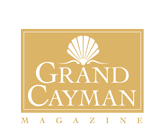Dubai, part of the United Arab Emirates and host of the International Boat Show, is a towering business and commercial center in the Middle East and sprawls along the southeast coast of the Persian Gulf.
Most of the buzz about this late-winter expo centered on the array of super-yachts docked there. The craft are among the biggest, grandest, most-stylish multimillion-dollar recreational vessels the world has ever seen.
These days, all the major boat shows display them, despite that the yachting industry suffered decade-long doldrums during and since the worldwide economic collapse. In fact, 2014 was the first time that seemed to show the stars aligning for a resurgence of interest in sea-going luxury from the richest people on the planet.
Their current principal objects of desire include a whole new selection of super-yachts (vessels over 40 meters – about 130 feet – in length) and even mega-yachts, roomier and grander still. These vessels are strictly for the mega-rich, the only consumers who can afford them and the first to emerge from the worldwide recession with great spending power.
Cayman ready to register
Cayman stands ready and eager to land itself an armada of such new seacraft – not for the sublime enjoyment of its residents but for the increased revenue and prestige such a fleet may bring the islands.
Government leaders hope a good portion of these vessels will be flying the Cayman flag as they cruise the seas. Such visibility could help enhance the islands’ image. Plus, all the fresh spending their owners and crews bring here will help enrich local suppliers of professional goods and services as well as government coffers through fees, levies and inspections costs.
 Being a place where wealthy foreign yacht owners register their sea-going palaces offers many of the same economic advantages to the Cayman Islands as the presence of offshore banking facilities do, albeit on a smaller yet more glamorous level.
Being a place where wealthy foreign yacht owners register their sea-going palaces offers many of the same economic advantages to the Cayman Islands as the presence of offshore banking facilities do, albeit on a smaller yet more glamorous level.
The Cayman Islands Shipping Registry, responsible for vetting craft and their owners, conducting inspections and setting rules for their international operation, already has expressed its excitement about the industry comeback, even if just one tier is making most of the progress. That tier is the one comprised of the largest, heaviest and most luxurious of yachts.
Yacht sales increasing
The world’s super-rich have started buying their new super-yachts, industry sales numbers clearly show. But the yachting world takes that as a sign sales of the whole range of luxury craft, including smaller, more modest vessels, will lift with what looks like a rising economic tide.
In January, Joel Walton, CEO of the Cayman Islands Shipping Registry, told a group of yachting industry leaders at a meeting that also happened to be in Dubai that he had been closely watching the re-emergence of large, luxurious seacraft following years of scant sales.
 He noted that “yacht builders with pedigree or innovative designs seem to have fared best, but overall, the industry seems robust and healthy.”
He noted that “yacht builders with pedigree or innovative designs seem to have fared best, but overall, the industry seems robust and healthy.”
Walton cautioned the shipping and maritime leaders in his audience about challenges to the yachting industry, though, including the European Union’s economic uncertainty, language and cultural issues that may result from the emergence of China as a new participant in world yachting, and the industry’s continuing globalization.
But he made sure he reminded his audience that Cayman remains an especially attractive flag of convenience for any foreign owner looking for benefits from the site where he registers his vessel. Walton focused on foreign owners, of course, since there are relatively too few Caymanians with the kind of wealth to own and maintain a major yacht.
Consider what it would take to buy and navigate a vessel like Illusion, a 275-foot Pride Yachts-made mega-craft now on the market for around $100 million. Certainly out of the reach of most on island.
That’s a good reason for the Cayman government and the CISR to persuade British, U.S., Brazilian, Chinese, or other yacht owners to pay their annual fees here. But, many wonder, what is it about big boat owners that compels them, wherever they live or operate their businesses, to seek out foreign ports to register such expensive investments?
The answer is that it’s not just ports such as Grand Cayman that win rewards for offshore yacht registration; the wealthy foreign owners of Cayman-registered craft find benefits beyond the imagination of most people of ordinary means.
Advantages in Cayman
Who better could enumerate the advantages to these owners than a maritime lawyer who focuses on helping the rich protect their wealth from being nickeled and dimed away by home government rules.
 Such is the role of David Neblett, a Miami maritime lawyer with the firm Perry & Neblett. “We deal with high-net-worth clients and help them” buy, register, staff, and operate their yachts in a way that helps them keep more of their wealth. In fact, it may surprise many readers how many benefits these yachtsmen accrue.
Such is the role of David Neblett, a Miami maritime lawyer with the firm Perry & Neblett. “We deal with high-net-worth clients and help them” buy, register, staff, and operate their yachts in a way that helps them keep more of their wealth. In fact, it may surprise many readers how many benefits these yachtsmen accrue.
“There are so many reasons why larger yacht owners register their boats abroad,” Neblett said. “One is that if you have a U.S. flag vessel, you fall under U.S. law in crewing it.” A good-sized luxury boat can require a crew of 10 to 20 people, and if you’re flying an American flag, they might have to be American citizens.
“And in the United States, there’s a shortage of people who do that kind of work,” Neblett said. “Plus, you have to have workers compensation insurance for each of them. There’s a big savings to hiring your crew outside the U.S.”
All 50 American states have sales taxes, too. In Florida, the rate is 7 percent (though in many cases it may be capped at $18,000). “There is no such tax on vessels in Cayman,” according to Neblett. “If you have one home in Florida and one in, say, New York, you probably have to pay many fees in both states if you sail between the two, another big expense.”
The Miami lawyer also points out that liability issues for owners of large vessels could put one’s personal wealth at risk in the case of certain legal disputes. “That’s why you usually want to create a corporation to hold ownership of your boat. That also can give owners a degree of anonymity when their craft bears the flag of a foreign nation.”
The Cayman Islands, he points out, provide legal privacy to corporate officers and board members, making it hard for international figures to sue them personally over issues regarding a yacht. Plus, famous athletes, business people, and entertainers can enjoy their luxury accommodations without drawing crowds of admirers –- or enemies.
“Tax benefits, privacy, liability, crewing requirements, all these are good reasons for our high-net-worth clients to register offshore,” Neblett said.
“Another is that U.S.-flagged vessels have to have U.S. Coast Guard inspections and certifications, and that involves more costs and obligations.”
What flag a yachtsman choses involves a quid pro quo. The owner benefits, and the port or nation where one is registered gets advantages, too. To set up a corporation to hold ownership of the vessel means the employment of local lawyers and, perhaps, accountants, relationships with financial institutions and some relationship with the government.
Holding the registration of a large number of sizable yachts not only brings revenue to the government and its shipping registry, it provides a measure of economic development in the private sector, as well. Owners must pay all those professionals, hire crews, maintain proper care and security for their vessel and dock it somewhere.
Choosing an offshore registry
Choosing an offshore yacht registration site, including Cayman, the Bahamas, Singapore, Cyprus, Panama, Hong Kong, and many more, can be an enormously complex process. In the U.S., savvy owners look for a board-certified maritime admiralty attorney who specializes in recreational boating. A well-decked-out firm also likely handles insurance choices, crewing issues, and financing matters.
There are more such firms all the time as, in most countries in the world, so much wealth has been accumulating in the top stratum of income and net worth. If the world economic crisis continues to fade into the past, the full spectrum of yachting industry participants is likely to grow larger, studies show.
That means more and bigger (and more luxurious) marinas and docking facilities in ports, more marine outfitting establishments doing increased business, and more back-shop professionals available to do the paperwork that yachting generates.
Boat International, a publication that focuses on international yacht sales, has chronicled a sharply growing market for the last year and more. “We know of 27 super yacht sales in January,” the current issue reported, “the best start to the year since the global financial crisis. It was up 10 on January 2014’s tally.”
But boating analysts have been focused on an emerging market of eager buyers that may affect the future of world yachting. ChinaDaily USA recently ran an article about this new market under the headline, “China is potentially biggest global yacht market.”
The popular publication went on to report that “China’s rich are becoming more interested in the yachting culture, and their numbers are big and growing.” And it named Shanghai as “the mega-city in China where yachting is catching on big among rich Chinese.” It also reported that the whole Chinese coast is undergoing a huge expansion of marinas.
That shows that wealthy residents of the most populous nation and the one whose economy has been rising the fastest in the world are as drawn to the sea as those whose fabulously rich have been motoring and sailing about for years in their floating mansions.
Welcoming yacht owners to register their craft in the Cayman Islands as their numbers increase is not only a kind gesture to the next generation of rich, private mariners, it likely enhances the economy here as well.
Mr. Bentayou, a freelance writer out of Tampa, Florida, is a frequent contributor to Pinnacle Media publications.




















